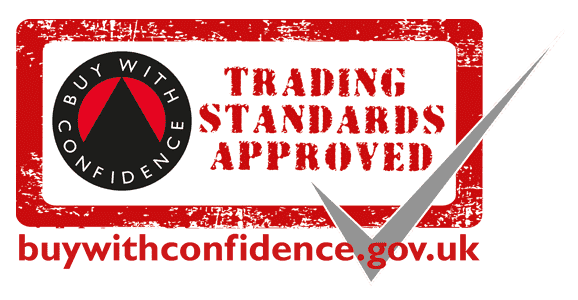Should I Buy Gold or Silver Bullion?
Should I buy gold or silver?
Gold gets all the attention in the precious metals market. And rightly so – it’s a stable investment that has a solid track record of holding its value and increasing in price over time. But did you know that silver offers some interesting investment qualities as well?
There are many reasons why people invest in either silver or gold, and each commodity has its own pros and cons. To help you decide which is the best precious metal for you, we’ve brought together some of the strengths and weaknesses of both to help you answer the question: Should I buy gold or silver?
What are the benefits of buying gold?
Gold has certain physical advantages over silver. It is dense metal, both in weight and value, meaning that a larger amount of wealth can be stored in a smaller volume of space. This is convenient for those wishing to invest a large amount of wealth for the long term. Take, for example, this 1kg gold bar worth roughly £32,500 (November 2017).
Gold also has the potential to rise in value over a long period of time, in particular during times of high inflation and volatile economic outlook. Investors wishing to secure a contingent of wealth against economic volatility often choose to do so with gold.
A notable example of this is the 2008 financial crisis, when worldwide national currencies plummeted in value. Since January 2007, the price of gold has soared, from £332.33 per troy ounce, to £963.92 at the start of 2017; an increase of almost 300 per cent. At its highest point in September 2012, gold was worth £1,163.15.
For that reason, investors that decide to buy gold bullion, do so because it is a reliable commodity that has a track record of holding onto its value over a long period of time, and increasing in price.
What are the benefits of buying silver?
Silver has a much lower density than gold in terms of value. A troy ounce of silver can be priced between 1-2 per cent of gold’s value. For storing large amounts of wealth, silver is less practical. To some investors however, this is a benefit, as it lets them enter the precious metals market on a smaller scale.
If you want to start trading without risking larger amounts of money, silver could be a good place to start.
The price of silver offers certain other benefits that gold does not. It is considered a more volatile commodity than gold; more closely governed by supply and demand. Silver is used in industries like electronics, film, photography, and solar panels, so the silver price can vary depending on the fortunes of these industries.
Silver is also influenced by the price of copper, since it is often mined as a by-product of copper. Its price is therefore also contingent on supply and demand in industries that use copper, such as housing.
Silver has the potential to reap significant rewards for investors open to a slightly higher level of risk. Over many decades, silver has less potential to reap reliable returns on investments, but its volatility will show over contained periods. Between July 5th 2010 and April 25th 2011, the price of silver rose from £11.78 per troy ounce, to £28.06; an increase of 144.31 per cent.
Are silver and gold tax free?
The two main taxes that you may have to pay on your gold bullion or silver bullion products are Value Added Tax (VAT) and Capital Gains Tax (CGT). VAT is 20 per cent (November 2017) added to the purchase price of an item. CGT is charged at the point of sale and is taxed at varying rates on all profits made above £11,300.
Buying gold bullion tax free is a significant advantage. If you pay VAT on a bullion product, for instance, it would have to rise in value by at least 20 per cent before that charge can be reclaimed.
Luckily, all gold investment products are VAT free. The only funds you’ll have to reclaim before you start to make money on your investment (assuming the gold price rises), are the premium you pay on the gold product on purchase, and in most cases, CGT on any profits made at sale.
Most gold coins produced by the Royal Mint are CGT free, as they are considered legal tender. The majority of other gold bullion products will be liable for CGT on any profits made over £11,300.
Silver is not generally free from either tax, which is a particular drawback when compared to gold and may influence your decision when it comes to deciding between whether you should buy gold or silver bullion. The price of silver will have to increase by at least the VAT paid, plus the premium you paid on the product, before you can start to make a profit. One exception to this is UK Silver coins minted by The Royal Mint which, as legal tender coins, are CGT free when sold on.
These tax rates are correct at the time of writing (November 2017) and may change between now and when you purchase your gold. You should check the contemporary tax rates before trading.
Where can I buy gold and silver?
There are many places that you can buy gold and silver. When buying gold coins and gold bars, you can choose to buy directly from the seller themselves, a local dealer, or an online dealer like The Gold Bullion Company.
Since the value of your gold or silver purchase will be primarily determined by the market price as shown on the precious metal price charts, it is important for you to pay the lowest premium you can on your silver or gold, as this will have to be reclaimed before you can make money.
Here at The Gold Bullion Company, our prices are automatically updated throughout the day to ensure you get the best possible value.
So what’s it to be? Gold or silver? Have a look at our range of gold bars and silver bars investment opportunities here.
















